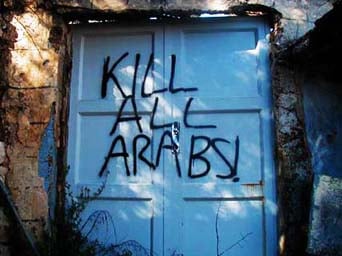“In order to show how thoroughly Israeli they had become, they also had to hate Arabs”
… by Jim W. Dean, VT Editor … featuring Uri Avnery of Gush Shalom
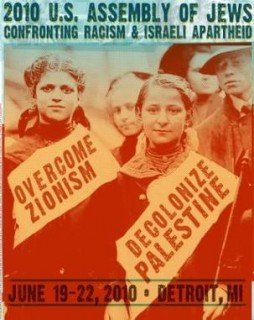 Uri Avnery has always been a one stop shop for anyone, especially non Israelis, looking for a quick down and dirty insight into Israeli internal politics and culture.
Uri Avnery has always been a one stop shop for anyone, especially non Israelis, looking for a quick down and dirty insight into Israeli internal politics and culture.
Here at VT, he is the go to man on all internal Israeli politics. But on top of that Uri has another big draw, he is just a fabulous writer.
Gordon Duff and I were having one of our usual discussions about keeping VT’s momentum growing. We doubled readership last year with the new website format. Looking for new talent and upgrading what we have, including ourselves, is always on the agenda.
We were patting ourselves on the back that we thought we both had improved a lot during the busy 2010. But then Gordon threw water on that by bring up Uri.
We are both 62, and when we read a Uri piece (85 now)…we know we are still in school when it comes to wordsmithing. Maybe at 65 or 70…we can be that good, maybe not.
But at least we get to read his stuff, for now. That has not yet been deemed an ‘Act of Hate’ by you know who. Maybe someday under the Defense Authorization Act, being in possession of Uri Avnery writing would be deemed ‘providing material support’ for you know what.
Today we have what I will call a Uri taking Israel to the laundry again to show us what comes out in the wash.
Here in America, land of the free, writing and publishing something like this in a mass media publication would not be possible. It would be like finding a ‘Horrors of the Gulags’ article in the old Soviet Pravda.
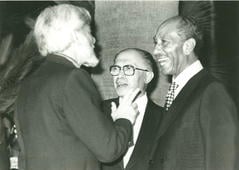
Uri’s long journalism record has been one of a reformer and constructive critic…a fight for the heart and future of Cultural Zionism. His revelations are so laser clear that he has had a virtual media black here.
If any of you have seen him on or in any American media, please let me know so I can put something in the empty folder.
One of the main themes of the Jewish/Israeli Lobby propaganda here in the States is that any opposition to them can only grounded in hatred for all Jews.
Hence, all the organs of the state… political, defense and law enforcement must be put at their disposal to eliminate this ‘threat’. This is their main herding tool for rank and file Jews. Fortunately, not all buy it.
Uri will give you a little more background below on where this attitude is coming from. And it’s not pretty.
When there are no non-Jews to inflict this upon, then a Jew will do. So we have the never ending charade of ‘playing the victim, guilt tripping on steroids, and then slicing up the home team in the locker room shower when they have soap in their eyes.’
Many Jews have come and gone from Israel, having gotten a good dose of what the Promised Land is really like. As part of my early education on this a Jewish mentor once told me, ‘If you could see what Jews do to Jews over there, you would not feel so bad over what they are trying to do to you.’
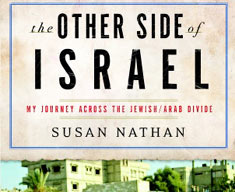
I did not get it at the time. I do now. And I have the greatest respect for all the cultural Zionists who just wanted to live in peace in the Holy Land with the original inhabitants.
But then ‘those other people came’, and it was not to be. And that is why I chose the quote I did for the subtitle. It is not mine. It is Uri. He’s lived through it all, so he has the delivery rights.
You can easily read about this in the Israeli newspapers, where they have a free and generally uncensored press.
Here is just one sample from the Jerusalem Post of what you will never see in American media, Ethiopians call on US Jews to fight racism in Israel. For a book version there is Susan Nathan’s The Other Side of Israel.
And now, for the one, the only…Uri Avnery. May he live to a hundred, as we are going to need people like this. He has a message of hope at the end. And those who can still have hope inside the long tunnel of darkness, are to be very held close.
The Blockbusters
Uri Avnery January 21, 2012
“Israel has no foreign policy, only a domestic policy,” Henry Kissinger once remarked.
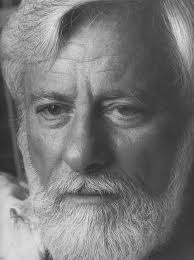 This has probably been more or less true of every country since the advent of democracy. Yet in Israel, this seems even truer. (Ironically, it could almost be said that the US has no foreign policy, only an Israeli domestic policy.)
This has probably been more or less true of every country since the advent of democracy. Yet in Israel, this seems even truer. (Ironically, it could almost be said that the US has no foreign policy, only an Israeli domestic policy.)
In order to understand our foreign policy, we have to look in the mirror. Who are we? What is our society like?
In a classical sketch, well known to every veteran Israeli, two Arabs stand on the sea shore, looking at a boat full of Russian Jewish pioneers rowing towards them. “May your house be destroyed!” they curse.
Next, the same two figures, this time Russian Jewish pioneers, stand on the same spot, launching Russian curses at a boat full of Yemenite immigrants.
Next, the two are Yemenites cursing German Jewish refugees fleeing from the Nazis. Then, two German Jews cursing Moroccan arrivals.
When it first appeared, that was the last scene. But now, one can add two Moroccans cursing the immigrants from Soviet Russia, then two Russians cursing the latest arrivals: Ethiopian Jews.
That may also be true for every immigrant country, from the United States to Australia. Every new wave of immigrants is greeted by the scorn, contempt and even open hostility of those who came before them. When I was a child in the early 1930s, I frequently heard people shouting at my parents “Go back to Hitler!”
Still, the dominant myth was that of the “melting pot”. All immigrants would be thrown into the same pot and cleansed of their “foreign” traits, emerging as a uniform new nation without any traces of their origin.
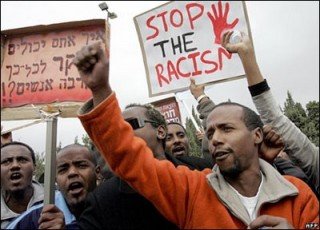 This myth died some decades ago. Israel is now a kind of federation of several major demographic-cultural blocs which dominate our social and political life.
This myth died some decades ago. Israel is now a kind of federation of several major demographic-cultural blocs which dominate our social and political life.
Who are they? There are (1) the old Ashkenazim (Jews of European origin); (2) the Oriental (or “Sephardi”) Jews; (3) the religious (partly Ashkenazi, partly Oriental); (4) the “Russians”, immigrants from all the countries of the former Soviet union; and (5) the Palestinian-Arab citizens, who did not come from anywhere.
This is, of course, a schematic presentation. None of the blocs is completely homogeneous. Each bloc has several sub blocs, some blocs overlap, there is some intermarriage, but on the whole, the picture is accurate. Gender plays no role in this division.
The political scene almost exactly mirrors these divisions. The Labor party was, in its heyday, the main instrument of Ashkenazi power. Its remnants, together with Kadima and Meretz, are still Ashkenazi. Avigdor Lieberman’s Israel Beytenu consists mainly of Russians.
There are three or four religious parties. Then there are two exclusively Arab parties, and the Communist party, which is mainly Arab, too. The Likud represents the bulk of the Orientals, though almost all its leaders are Ashkenazim.
The relationship between the blocs is often strained. Just now, the whole country is in an uproar because in Kiryat Malakhi, a southern town with mainly Oriental inhabitants, house owners have signed a commitment not to sell apartments to Ethiopians, while the Rabbi of Safed, a northern town of mainly Orthodox Jews, has forbidden his flock to rent apartments to Arabs.
But apart from the rift between the Jews and the Arabs, the main problem is the resentment of the Orientals, the Russians and the religious against what they call “the Ashkenazi elite”.
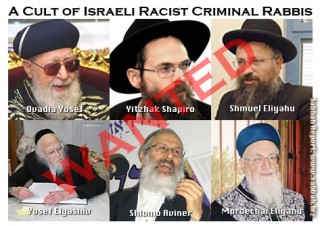
Since they were the first to arrive, long before the establishment of the state, Ashkenazim control most of the centers of power – social, political, economic, cultural et al.
Generally, they belong to the more affluent part of society, while the Orientals, the Orthodox, the Russians and the Arabs generally belong to the lower socio-economic strata.
The Orientals have deep grudges against the Ashkenazim.
They believe – not without justification – that they have been humiliated and discriminated against from their first day in the country, and still are, though quite a number of them have reached high economic and political positions.
The other day, a top director of one of the foremost financial institutions caused a scandal when he accused the “Whites” (i.e. Ashkenazim) of dominating all the banks, the courts and the media. He was promptly fired, which caused another scandal.
The Likud came to power in 1977, dethroning Labor. With short interruptions, It has been in power ever since. Yet most Likud members still feel that the Ashkenazim rule Israel, leaving them far behind.
Now, 34 years later, the dark wave of anti-democratic legislation pushed by Likud deputies is being justified by the slogan “We must start to rule!”
The scene reminds me of a building site surrounded by a wooden fence. The canny contractor has left some holes in the fence, so that curious passers-by can look in. In our society, all the other blocs feel like outsiders looking through the holes, full of envy for the Ashkenazi “elite” inside, who have all the good things.
They hate everything they connect with this “elite”: the Supreme Court, the media, the human rights organizations, and especially the peace camp. All these are called “leftist”, a word curiously enough identified with the “elite”.
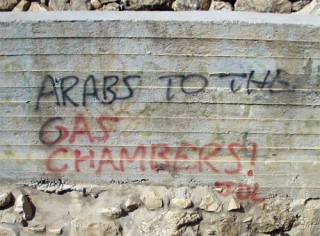
How has “peace” become associated with the dominant and domineering Ashkenazim? That is one of the great tragedies of our country.
Jews have lived for many centuries in the Muslim world. There they never experienced the terrible things committed in Europe by Christian anti-Semitism. Muslim-Jewish animosity started only a century ago, with the advent of Zionism, and for obvious reasons.
When the Jews from Muslim countries started to arrive en masse in Israel, they were steeped in Arab culture. But here they were received by a society that held everything Arab in total contempt.
Their Arab culture was “primitive”, while real culture was European. Furthermore, they were identified with the murderous Muslims.
So the immigrants were required to shed their own culture and traditions, their accent, their memories, their music. In order to show how thoroughly Israeli they had become, they also had to hate Arabs.
It is, of course, a world-wide phenomenon that in multi-national countries, the most downtrodden class of the dominant nation is also the most radical nationalist foe of the minority nations.
Belonging to the superior nation is often the only source of pride left to them. The result is frequently virulent racism and xenophobia.
This is one of the reasons why the Orientals were attracted to the Likud, for whom the rejection of peace and the hatred of Arabs are supreme virtues. Also, having been in opposition for ages, the Likud was seen as representing those who were “outside”, fighting those who were “inside”. This is still the case.
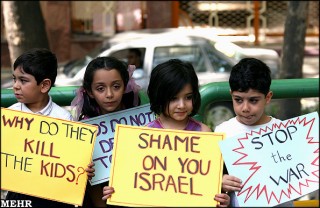 The case of the “Russians” is different. They grew up in a society that despised democracy, admired strong leaders.
The case of the “Russians” is different. They grew up in a society that despised democracy, admired strong leaders.
The “whites”, Russians and Ukrainians, despised and hated the “dark” peoples of the south – Armenians, Georgians, Tatars, Uzbeks and such. I once invented a formula:
“Bolshevism minus Marxism equals Fascism”.
When the Russian Jews came to join us, they brought with them a virulent nationalism, a complete disinterest in democracy and an automatic hatred of Arabs.
They cannot understand why we allowed them to stay here at all.
When, this week, a lady deputy (though “lady” may be euphemistic) from St. Petersburg poured a glass of water on the head of an Arab deputy from the Labor party, nobody was very surprised. (Somebody quipped: “a Good Arab is a wet Arab”).
For Lieberman’s followers, Peace is a dirty word, and so is Democracy.
For religious people of all shades – from the ultra-Orthodox to the National-Religious settlers, there is no problem at all.
From the crib on, they learn that Jews are the Chosen People; that the Almighty personally promised us this country; that the Goyim – including the Arabs – are just inferior human beings.
It may be said, quite rightly, that I generalize. I do, just to simplify matters. There are indeed a lot of Orientals, especially of the younger generation, who are repelled by the ultra-nationalism of the Likud, the more so as the neo-liberalism of Binyamin Netanyahu (which Shimon Peres once called “swinish capitalism”) is in direct contradiction to the basic interests of their community.
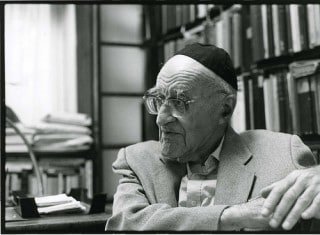
There are also a lot of decent, liberal, peace-loving religious people. (Yeshayahu Leibovitz comes to mind.) Some Russians are gradually leaving their self-imposed ghetto. But these are small minorities in their communities.
The bulk of the three blocs – Oriental, Russian and religious – are united in their opposition to peace, and at best indifferent to democracy.
All these together constitute the right-wing, anti-peace coalition that is governing Israel now. The problem is not just a question of politics. It is much more profound – and much more daunting.
Some people blame us, the democratic peace movement, for not recognizing the problem early enough, and not doing enough to attract the members of the various blocs to the ideals of peace and democracy. Also, it is said, we did not show that social justice is inseparably connected with democracy and peace.
I must accept my share of the blame for this failure, though I might point out that I tried to make the connection right from the beginning.
I asked my friends to concentrate our efforts on the Oriental community, remind them of the glories of the Muslim-Jewish “golden Age” in Spain, of the huge mutual impact of Jewish and Muslim scientists, poets and religious thinkers throughout the ages.
A few days ago, I was invited to give a lecture to the faculty and students of Ben-Gurion University in Beer Sheva. I described the situation more or less along the same lines.
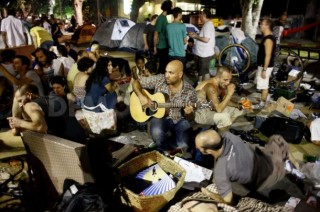 The first question from the large audience, which consisted of Jews – both Orientals and Ashkenazim, and Arabs – especially Bedouins was: “So what hope is there? Faced with this reality, how can the peace forces win?”
The first question from the large audience, which consisted of Jews – both Orientals and Ashkenazim, and Arabs – especially Bedouins was: “So what hope is there? Faced with this reality, how can the peace forces win?”
I told them that I put my trust in the new generation. Last summer’s huge social protest movement, which erupted quite suddenly and swept [“along”?] hundreds of thousands, showed that yes, it can happen here.
The movement united Ashkenazim and Orientals. Tent cities sprang up in Tel Aviv and Beer Sheva, all over the place.
Our first job is to break the barriers between the blocs, change reality, create a new Israeli society. We need blockbusters.
Yes, it is a daunting job. But I believe it can be done.
Editing: Jim W. Dean
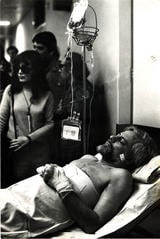
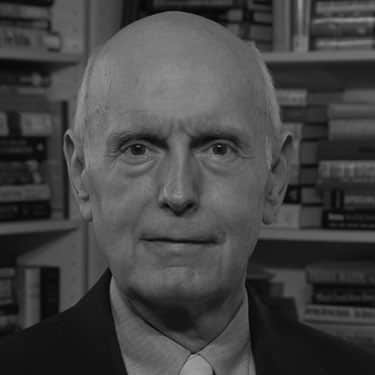
Jim W. Dean was an active editor on VT from 2010-2022. He was involved in operations, development, and writing, plus an active schedule of TV and radio interviews.
ATTENTION READERS
We See The World From All Sides and Want YOU To Be Fully InformedIn fact, intentional disinformation is a disgraceful scourge in media today. So to assuage any possible errant incorrect information posted herein, we strongly encourage you to seek corroboration from other non-VT sources before forming an educated opinion.
About VT - Policies & Disclosures - Comment Policy

